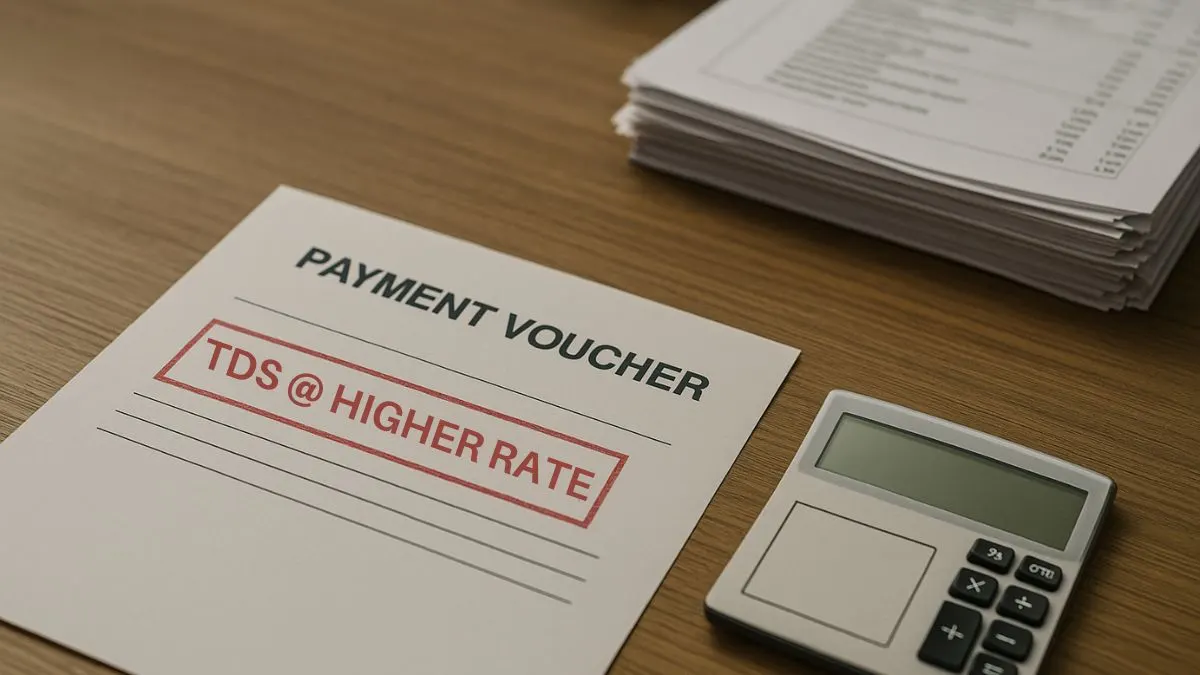
Disbursement Chapter IV of the Indian Income Tax Act provides certain provisions to govern transactions in order to have a check, proper transparency & avoid loss of revenue. Of these, special mention may be made of Section 206 of the Income Tax Act, 1961 which is provided for deduction of tax at source (TDS) in certain businesses.
This particular section pertains to various businesses of alcoholic liquor, forest produce, scrap, tendu leaves, timber and other cash-laden goods. To hold responsible, the law in its wisdom provides higher TDS on non-furnishing of PAN and mandates persons deducting tax to also furnish prescribed returns.
Scope of Section 206
The intention of Section 206 is to make sure that companies in sensitive fields are not making tax-free gains. It covers:
- Other income also includes on profits & gains derived from the business of trading in alcoholic liquor.
- Profits from forest produce like wood and tendu leaves – as these are big cash markets.
- Scrap sales – where disorganized retail occurs."
By making such transactions liable to TDS, the section ensures that all payments are accounted for & reported to the tax department.
Savvy Shopper Tip: PAN Requirement – Why It Matters
Significance of PAN under Section 206 – One of the salient features of Section 206 is furnishing of PAN.
- The person in charge of TDS needs to give his PAN to the deductor.
- In case of non-provision of PAN, the designated authorities have power to deduct TDS at higher rates than the prescribed one.
By encouraging compliance & making every taxpayer traceable in the system, this provision is seen to serve as an anti-evasion measure.
Also Read: A Complete Guide to TCS on Sale of Goods
Higher Rates of TDS on Non-Furnish of PAN
There is a special provision in Section 206 which permits the government to deduct a higher rate of TDS if PAN is not provided.
For example:
- TDS rate is generally 1% or 5%, as the case may be, if PAN is provided by deductee.
- TDS can be deducted at 20% in other cases or at a higher rate under the provisions of the Income-tax Act.
This allows for enforcement & incentivizes businesses to retain good records.
Deduction at Source & Filing Requirements
The other requirement under Section 206 is that the person responsible to deduct tax shall deliver to the Income Tax Department returns in such form, verified in such manner and setting forth particulars as may be prescribed.
This includes:
- Filing quarterly TDS statements.
- Furnishing particulars of deductees and amount deducted.
Through these returns the government can have a cross-check on the declarations made & ensure transparent tax collection.
Section 206 Example in Practice
For instance, if a trader buys scrap worth ₹50 lakh from another dealer. The seller is also required to collect TCS (Tax Collected at Source) under Section 206C.
In case the buyer doesn't provide PAN, the supplier will be required to deduct TCS at a higher rate.
This is a demonstration of how Section 206 promotes transparency in high-cash industries.
Also Read: The Rule That Doubles Your TDS if You Don’t File ITR
Penalties for Non-Compliance
Consequences of non-compliance with Section 206:
- Non-provision of PAN – TDS deduction at higher rates.
- Non-filing of returns – penalties as well as interest."
- Non-deduction of tax – the deductor may become personally liable.
The legislation guarantees there is no fudging reporting requirements.
Section 206 vs Section 206C vs Section 206AA
- Section 206 – Liability to deduct TDS on specific transactions.
- Section 206C – Liability to collect TCS on goods like liquor, tendu leaves, scrap etc.
- Section 206AA – Applies higher rates of TDS when PAN is not provided.
Collectively, these provisions provide strong monitoring for sensitive industries.
What Businesses Should Know About Section 206
For businesses dealing with alcohol, timber, scrap & forest produce:
- It prevents fines and lawsuits.
- It boosts credibility – correct filing of returns builds trust.
- It mitigates risk – proper TDS & PAN compliance reduces tax queries.
So Section 206 is not just about tax — it’s about transparency, compliance & credibility.
Also Read: Section 206AA of the Income Tax Act: PAN is Not Optional!
Conclusion
Section 206 of the Income Tax Act, 1961 is an important provision meant for compliance which applies to profits and gains from business of alcoholic liquor, forest produce, scrap, tendu leaves, timber etc.
It provides for obligation of payers to deduct tax, file prescribed returns & also empowers authorities to levy a higher rate TDS in case of non-PAN submission.
This clause serves as a powerful instrument to oversee high-cash transactions & improve the tax collection culture in India.
✅ Need expert advice on TDS, PAN compliance & Section 206 responsibilities? Contact us at Callmyca.com – your tax partner for trouble-free compliance and maximum savings.










